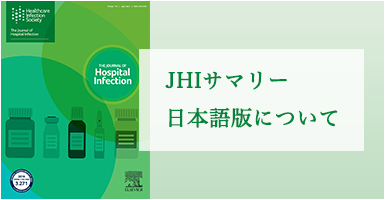医療関連感染の管理責任:どこに責任があるのか?★
Responsibility for managing healthcare-associated infections: where does the buck stop?
B.I. Duerden*
*Department of Health, UK
Journal of Hospital Infection (2009) 73, 414-417
医療関連感染の予防・制御には、保健医療福祉界全体を通じた医師・医療提供者、経営(管理)者、および政府・保健省の三者の協調が必要である。メチシリン耐性黄色ブドウ球菌(Staphylococcus aureus)菌血症およびクロストリジウム・ディフィシル(Clostridium difficile)感染症を対象とした義務的サーベイランスにより、これらの疾患の症例数はそれぞれのピークであった2003~2004年および2006年から著しく減少しており、現在は予防可能な感染および不良な臨床実践を対象としてゼロ・トレランス方式※を採用している。これまでの成功事例は、経営公約(senior management commitment)、即時サーベイランスの強化、臨床プロトコール(大きな影響を及ぼす介入、適正な処方)の実施、手指衛生と環境清掃の改善、および訓練・監査に基づいており、これらには目標と法律(実施基準[Code of Practice])を介するパフォーマンス・マネジメントの強化という裏付けがあった。保健省の改善班は臨床実践の改善のために英国国民保健サービス・トラストを支援してきた。医療関連感染の管理責任は、手順やプロトコールの実施が遵守されることの保証を基本とした管理者責任と、すべての医師およびその他の医療従事者の専門家としての個人の責任の両方から成り立っている。
サマリー 原文(英語)はこちら
監訳者コメント:
英国の医療関連感染制御に関する国の関与や義務的サーベイランスに関する総説。それに興味ある方はご一読願いたいが、要約に記されている内容自体はそれほど目新しい考え方ではない。
監訳者注:
※ゼロ・トレランス方式(zero tolerance):ここでは、感染症を完全になくすことを目指すのではなく、予防・回避可能な感染や不良な臨床実践(手指衛生の遵守、無菌操作、不用意な抗菌薬処方など)を厳格に排除する方針を称している。
同カテゴリの記事
Misidentification as Pseudomonas aeruginosa in hospital water supply samples S. Taudien*, W. Leszczynski, T. Mayer, U. Loderstät, O. Bader, M. Kaase, S. Scheithauer *University Medical Center Göttingen, Georg August University Göttingen, Germany Journal of Hospital Infection (2023) 133, 23-27
Stenotrophomonas maltophilia and antibiotic use in German intensive care units: data from Project SARI (Surveillance of Antimicrobial Use and Antimicrobial Resistance in German Intensive Care Units)
Implementation of influenza point-of-care testing and patient cohorting during a high-incidence season: a retrospective analysis of impact on infection prevention and control and clinical outcomes
Endoscope disinfection using chlorine dioxide in an automated washer-disinfector
What’s trending in the infection prevention and control literature? From HIS 2012 to HIS 2014, and beyond



